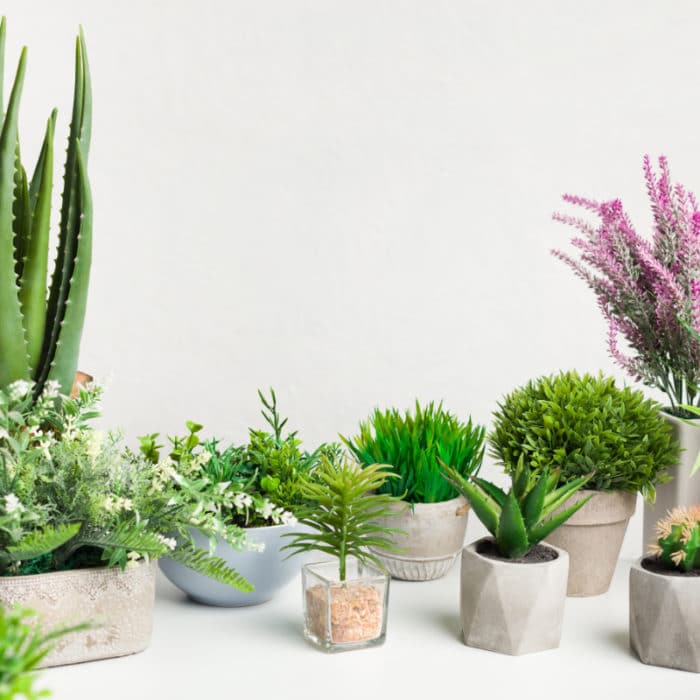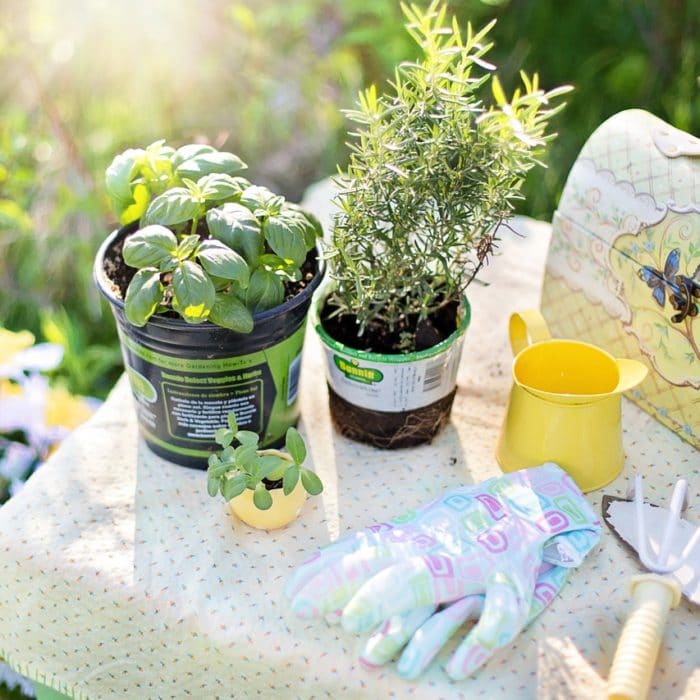
1. Healthy Produce
You can grow healthy, organic produce inside your home year-round with the proper tools. Not only will this lead to savings on your grocery bill, but you’ll also be assured to have food that is grown without harmful pesticides that are freshly picked for your table. Some plants offer home remedies as well (such as aloe vera for burns).
Many grow a variety of indoor edible plants. While herbs are quite common, you can also grow strawberries, lettuce, Meyer lemons, or even root vegetables as long as you have the proper lighting and soil.
Here are a few of our recent guides for edible plants:
- Sorry, nothing could be found.
Learn to Care for the Environment
When you learn to care for plants, you learn more about caring for the environment. This is an especially important lesson that you can pass on to your children. Every step you take toward plant appreciation will help you find other ways to take care of the world around you.
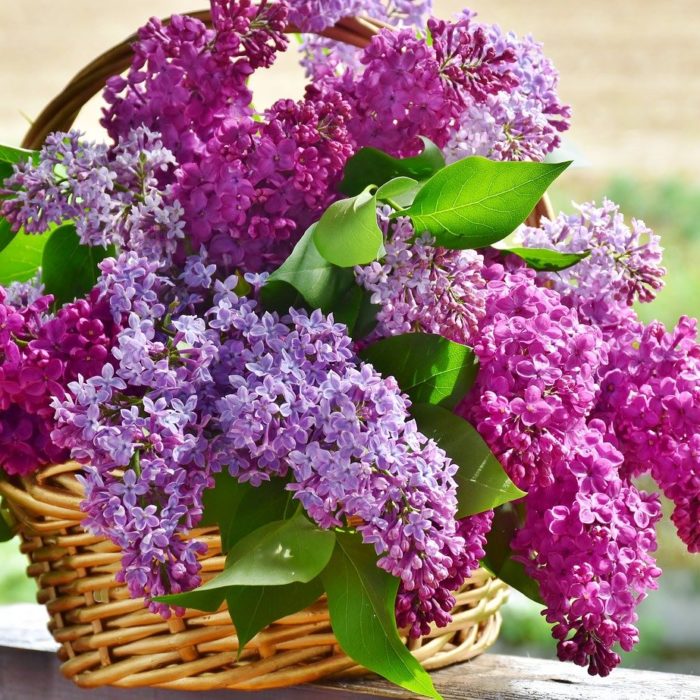
2. Indoor Plants Can Reduce Stress and Anxiety
Several studies (including this one from Surrey University) have noted the positive psychological effects of houseplants. The results proved that live foliage near the participants helped them feel more at ease and they were able to relax better than in an environment void of plants. They benefited from the following:
- Lowered heart rates
- Improved respiratory system
- Lower blood pressure.
These physical reactions will lower your stress and anxiety and reduce your fatigue. Many workplaces add plants to their environments to help their workers overcome office pressure, boost moods, and increase productivity with fewer mistakes.
How Many Plants Should You Have?
Experts state that to maximize the benefits in your home, you should aim to have one large potted plant (in a container that is 8 inch/20 cm or larger) or two smaller plants for every 100 square feet (9.3 meters) in your home. When purchasing plants for your space, remember to take into account the natural light, humidity, and temperature within your home or office.
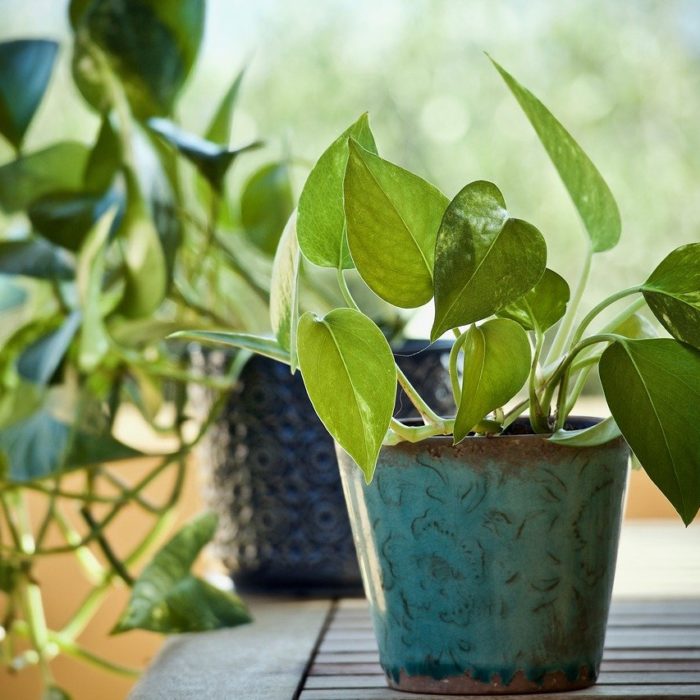
3. Indoor Plants Can Purify Air
Most scientists agree that indoor plants work to reduce the negative side-effects caused by indoor pollution and Sick Building Syndrome (SBS – caused by uncontrolled light/humidity, poor air quality, and too much background noise). By incorporating plants into your home or office decor, you’ll be able their benefits in a way that can improve your overall health. These benefits include:
- Increased humidity
- Lower air temperature
- Reduced levels of carbon dioxide, nitrogen dioxide, and benzene
- Reduced levels of other toxins such as formaldehyde, carbon monoxide, pollen, mold, ammonia
- Reduced dust levels (airborn)
When you reduce the levels of indoor air pollution, you also reduce the chances of you suffering from respiratory infections, allergies, headaches, fatigue, lung cancer, COPD, ischemic heart disease, stroke, and general illness.
Plants may not be able to reduce the full amount of air pollution in your home, they can certainly help. Studies show that even just a few plants can reduce toxins substantially, often by more than 80% daily. These toxins can sneak into your home in a variety of ways including paint, carpets, cigarette smoke, and solvents.
NASA’s Clean Air Study in 1989 showed great benefits from surrounding yourself with indoor plants. It showed that both the roots and leaves of the plant would remove readable levels of toxic vapors from indoor spaces.
The researchers now recommend that you have one indoor plant for every 100 square feet (9.3 square meters) of space. It should be noted, however, that to replicate their study’s results, you would need to purchase hundreds of houseplants for your home.
Three easy-care plants that purify air are the following are the spider plant, English ivy, and philodendrons.
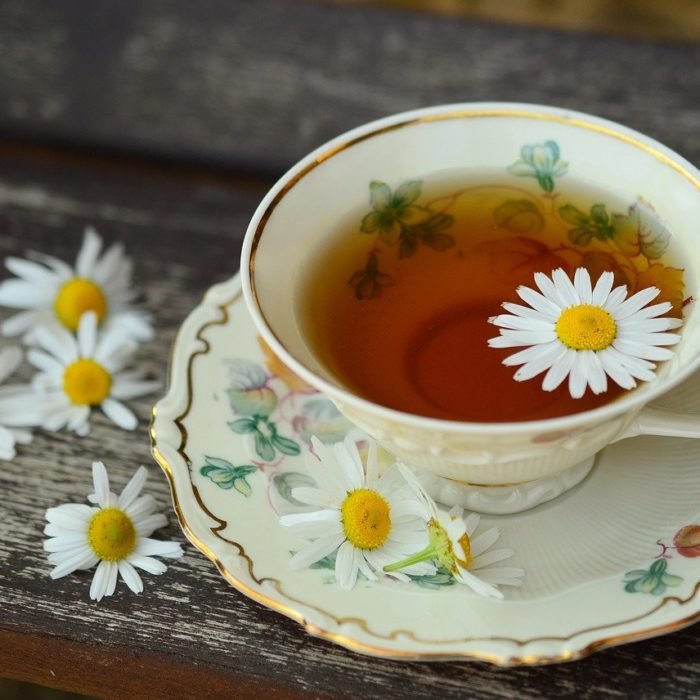
4. Houseplants Assist in Better Breathing and Sleep
Not only are they purifying the air you breathe, but your plants’ act of photosynthesis will also absorb the carbon dioxide you exhale and provide you with increased oxygen levels. It is important to note that the amount of oxygen your plants provide won’t raise the levels much higher than they are (unless you decorate every inch of your home with house plants – which isn’t a bad idea).
Some house plants will even help you sleep. Their gentle scents will lull you into a relaxed state that will improve the quality of your sleep. Some studies have shown they will even lower your anxiety, blood pressure, and heart rates. Great plants to keep near your bed include lavender, gardenia, and jasmine.
Some plants that may help you settle down and sleep will include the following:
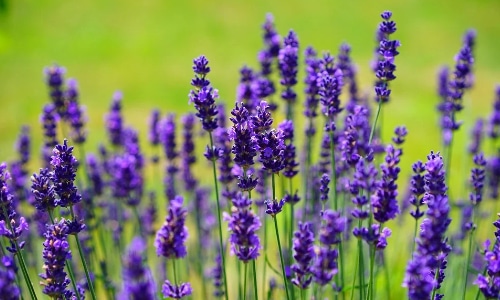
Lavender Overview
Lavender is a well-known and loved perennial herb that produces long stems with delicate buds and blooms. While the foliage can range in color from bright green to grey, the flowers are typically light purple but can come in other colors. They emit a floral scent that many people find calming. In fact, lavender is often used as a home remedy for sleep or stress relief. Lavender is fairly easy to grow and can be harvested up to several times per year (depending on the variety).
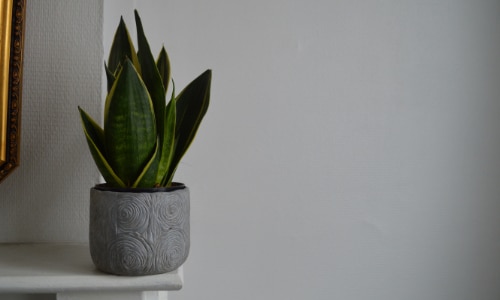
Snake Plant Overview
Also known as “Mother-in-Law’s-Tongue,” the Snake Plant is a popular plant that can grow up to 4 feet tall with proper care. The plant is created with sword-shaped leaves the grow directly from the base. The leaves will vary in color between light and dark green as well as a bluish green. Not only is the Snake Plant a hardy plant that can grow in a variety of conditions, but it is also known as a plant that will help clean the air in your home.
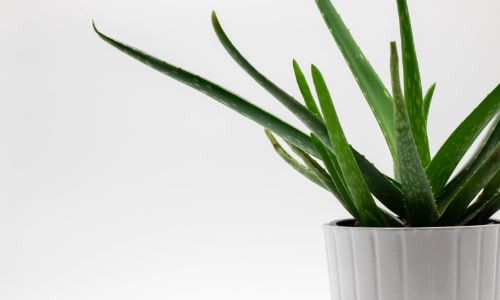
Aloe Vera Overview
A member of the lily family, Aloe Vera is a short-stemmed shrub that is very popular for its healing properties. The leaves of the plant are succulent and stand erect and contain a gel-like center that is often used to relieve burns or treat other skin issues. The Aloe Vera plant is typically light green and is easy to propagate. They typically enjoy warmer environments. They can grow to above three feet in length but are generally harvested more frequently.

English Ivy Overview
Although the English Ivy is considered an invasive plant in many outdoor areas, it is the perfect indoor plant for busy people. This perennial vine comes in many varieties ranging in size. Some people keep smaller varieties in terrariums, while others will keep a variegated variety in a pot and have it climb around the frame of a windowsill. Without pruning, the vines of the English Ivy can grow quite long, reaching at least 90 feet.
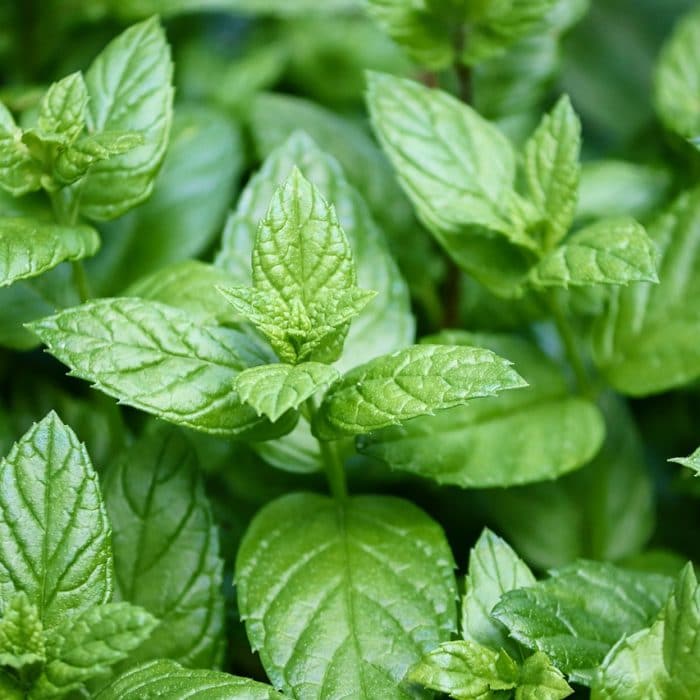
5. Plants Can Improve Your Health
A study by Kansas State University proved that even ornamental plants can speed up a patient’s recovery. These patients also had lower blood pressure and anxiety requested fewer pills and were released sooner than other patients. All of this from a cheap houseplant.
Plants also increase the humidity of the air and decrease dust particles, which can help fight colds, viruses, and allergies (so long as you aren’t allergic to that particular plant). Certain plants air with breathing (such as eucalyptus) and offer other medicinal value (such as peppermint to reduce fever).
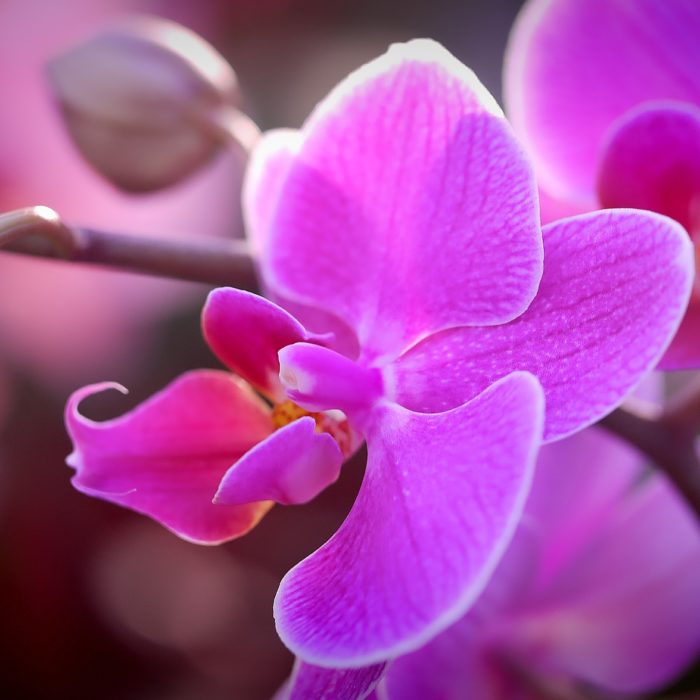
6. Houseplants Can Boost Your Mood
It isn’t a secret that a hike in the woods or a day at the park can elevate your mood. In fact, the book The Healing Magic of Forest Bathing explores this phenomenon. Bringing nature into your home will help you take a step toward increasing your mood on a daily basis.
Flowers and plants have become such a part of our lives that we often associate specific events with floral scents or when seeing a bouquet. Houseplants are no different. You can fill your home with exotic travel memories by purchasing plants from the regions you have visited (you will most likely need to order them from home instead of bringing them home). Used a special foliage at your wedding? You may be able to keep one or two around your home.
It has also been shown that those who care for houseplants are much more empathetic to people around them. The act of caring becomes easier and more natural.
Overall, plants can improve a person’s outlook on life, even by reducing depression or anxiety.
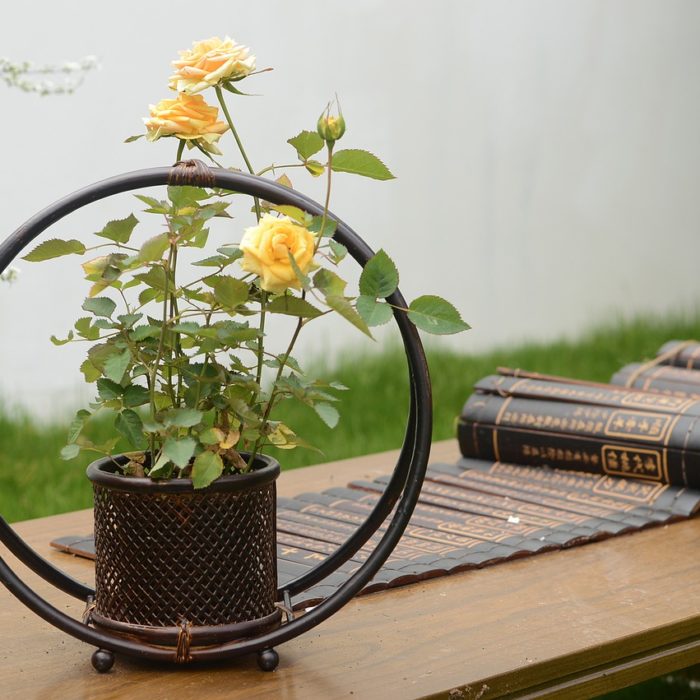
7. Indoor Plants Can Increase Productivity
There have been several studies and trials that have compared participants in offices surrounded by plants versus those in “traditional” workplace environments. The “plant participants” were much more productive and lost fewer days to illness compared to workers without plants.
Reaction times were much faster, moods were improved, and people remained more focused. Not only will plants increase your productivity, but there is also evidence that plants can increase your creativity and memory.
Plants Are For Everyone (Beginners and Experts)
There are indoor plants that can thrive even in relative darkness and very little care. While some plants may require an expert green thumb due to their finicky nature, there are many plants that are perfect for the beginner as they learn the routines on general plant care. Ivies, succulents, and air plants are generally very easy to care about and there are many beautiful varieties available.
Here are a few of our guides for easy-care plants:
- Sorry, nothing could be found.
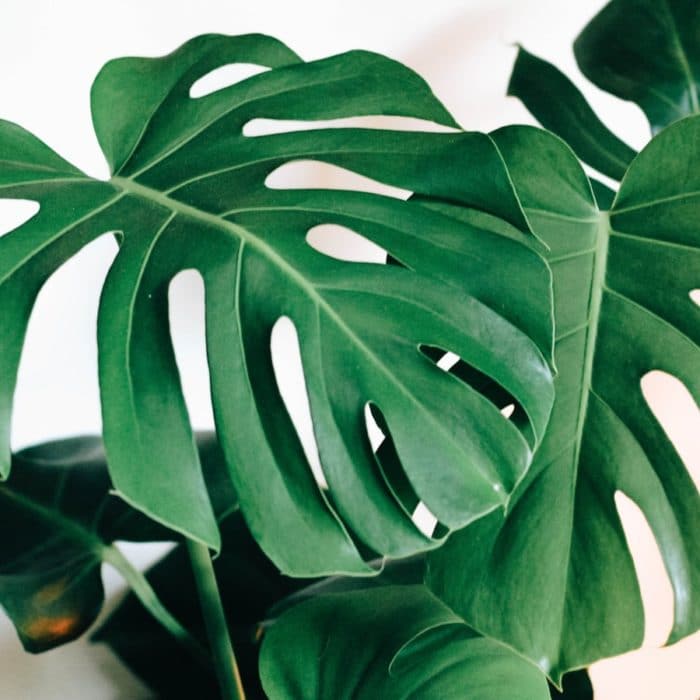
8. Indoor Plants Offer a Variety of Unique Decor
Whatever your style, there is likely a houseplant (or 12) that would complement your home or office perfectly. From flowers to vines or air plants to succulents kept in a terrarium, the smells, textures, and colors are absolutely endless. Finding the perfect plant for each room can be very rewarding, especially when you get to enjoy it year after year.
Depending on the lighting, humidity, and temperature of your home, you will be able to find many plants (both large and small) that you can place all throughout your home. Move them around occasionally or add the seasonal plant to add some fresh color and to keep things interesting.
Even Pictures of Plants Can Improve Your Space
If you truly don’t have the time or energy to take care of plants, you can still receive some of the psychological benefits of owning them if you decorate your space with fake plants or photographs. These have also been proven to elevate your mood and reduce anxiety.

